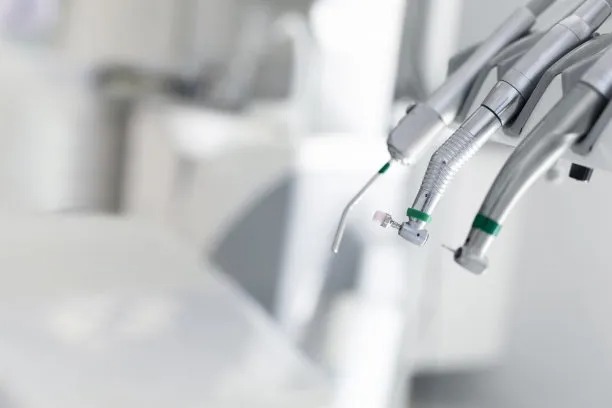Essential Considerations and Precautions to Take Before Undergoing Dental Filling Procedure for Optimal Oral Health
Summary: Dental fillings are a common solution for treating cavities, but before undergoing this procedure, there are several essential considerations and precautions that patients should be aware of to ensure their optimal oral health. This article explores the importance of understanding the types of dental materials available, considering overall health factors, knowing the procedures implications, and preparing adequately for a successful filling. Each section elaborates on these key aspects, providing insights and tips to enhance the dental experience. Comprehending these details will empower patients to make informed decisions and maintain a healthy smile.
1. Understanding Dental Filling Materials

Before undergoing a dental filling procedure, it is crucial to understand the various types of materials used for fillings. Common options include amalgam, composite resin, glass ionomer, and porcelain. Each material carry its own unique advantages and disadvantages. For instance, amalgam is durable and cost-effective but less aesthetically pleasing, while composite resins can match tooth color but might not be as resilient.
Additionally, some patients may have sensitivities or allergies to specific materials. It is pertinent to discuss these concerns with your dentist, who can recommend an appropriate option based on individual needs. Understanding these materials can also influence a patients decision, which is vital for long-term satisfaction with the filling.
Lastly, the choice of filling material can affect the tooths lifecycle and future procedures. Some materials may require replacement sooner than others, leading to additional costs and potential complications for long-term oral health. Therefore, understanding the implications of each filling type is essential before proceeding.
2. Evaluating Overall Health and Medical History
Your overall health and medical history play a crucial role in the dental filling process. Certain underlying health conditions, such as diabetes or heart disease, can influence healing and recovery post-procedure. Furthermore, medications taken for such conditions may interact with anesthesia or affect blood clotting, making it essential to communicate any health issues to your dentist.
Moreover, previous dental work is also relevant. If you have had fillings, crowns, or root canals in the past, those factors may impact your current treatment plan. Patients should maintain an open dialogue with their dental care providers, sharing comprehensive medical records to ensure a tailored approach to their dental care.
Being proactive about your overall health can lead to better outcomes and increased comfort during the procedure. Not only helps having a healthy lifestyle minimize complications but can also result in a more straightforward healing process afterward, promoting faster recovery and long-term oral health.
3. Preparing for the Dental Filling Procedure
Preparation for a dental filling procedure involves a few practical steps that can enhance the experience. First and foremost, ensuring you have a clear understanding of the procedure itself will help reduce anxiety. Its advisable to ask your dentist any questions regarding what to expect before, during, and after the filling process.
Additionally, consider arranging for transportation to and from your appointment, especially if sedation will be used. This minimizes stress on the day of your procedure and allows you to focus on recovery afterward. Taking preventive measures, like avoiding heavy meals before the appointment, can also help you feel more comfortable.
Lastly, practicing good oral hygiene in the days leading up to your appointment can create a healthier environment for the filling procedure. Brushing and flossing diligently can help minimize bacteria and inflammation in the affected area, allowing your dentist to work effectively.
4. Post-Procedure Care and Follow-Up
After getting a dental filling, it is essential to adhere to proper post-procedure care to ensure optimal healing. Patients should be aware of potential sensitivity in the filled tooth. This can last from a few days to a couple of weeks. Avoiding extremely hot or cold food and beverages can help manage discomfort during this period.
Follow-up care is also a vital aspect of maintaining oral health post-procedure. Schedule a check-up with your dentist to verify the fillings effectiveness and monitor for any signs of complications, such as reinfection or filling failure. Regular dental visits can help identify issues early, ensuring they are addressed in a timely manner.
Lastly, maintaining good oral hygiene habits after the filling is crucial for long-term success. Regular brushing, flossing, and dental cleanings can prevent the formation of new cavities and keep your smile healthy. Healthy habits foster better oral health and prolong the life of your fillings.
Summary:
In conclusion, undergoing a dental filling procedure requires thoughtful consideration of various factors, including material options, health evaluations, adequate preparations, and post-procedure care. These aspects contribute to optimal oral health and improve the overall experience for patients. Embracing these essential precautions allows individuals to be proactive in their dental care, leading to more favorable outcomes.
This article is compiled by Vickong Dental and the content is for reference only.



